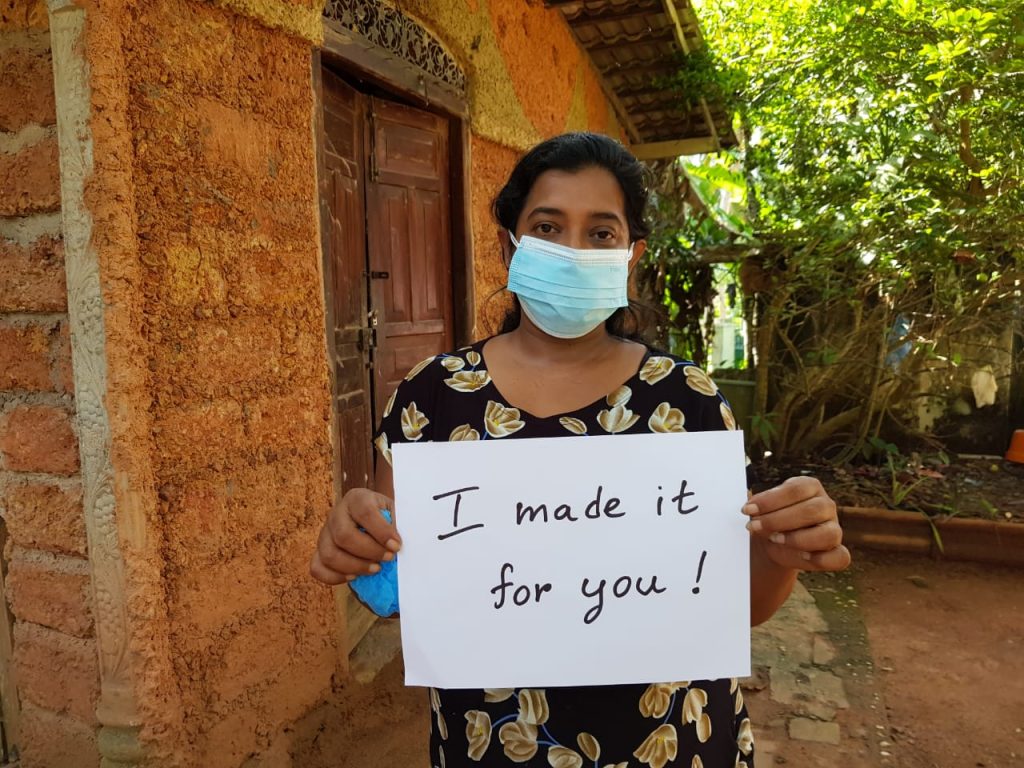
Women ornate and accessorized is a concept past down from the days of old. The instinctive need to create from nature and honor the produce by using it decoratively on ourselves in the form of jewelry and having practical yet beautifully produced bags that carry our goods, unfolds with the creativity our craftswomen demonstrate through their talent. A produce of nature commonly known as ‘pan leaves or reed leaves’ are a strong, durable 100% eco friendly product found in nature. These Pan/Reed plants grow in the vicinity of shallow water runs or damp ground surfaces, and their unique hollow stem provides many uses. As this foliage grows in abundance and in the wilds of Bentota, Induruwa, Batticalo and Trincomalee, often the usage of these plants helps clear the access for villages to pass, hence there is no waste of the weeding process when its used to create a livelihood for those in the local villages. The pan art has its history in the form of woven mats used as beds and to adorn household flooring and roofing – it’s a ritualistic process that brought women and young girls together as they sit around in groups talking, laughing and bonding learning the art whilst producing. Much like the western tradition of quilting where a generation comes together to uphold traditions. Mat weaving is locally known as Paduru (Mat) Rataa (method). As time past the local women discovered that
other items such as handbags, table mats, purses, hats, rice quills, pot holders, lampshade and storage pouches can also be crafted with the use of reed weaving. With this the home industries turned into cottage industries and continue to be a livelihood for many households.
Further industries such as batik designing on natural fabric, which is a name unique to waxed dye craft was adapted by villages as small industries. Another such art is the crafting from the disposable coconut shells for kitchen tools and bowls as well as classic jewelry like earrings, bracelets and chains which are known for their therapeutic warmth and connection with the earth sending healthy vibes to the wearer. Understanding the ancient art of batik, the very technique of color and design imprinted through boiling and waxed resistant imprinting is a tradition passed down through generations, as the workshops are their back gardens and parts of the house they live in. The sun and the rain play a part in this process as the absorption of color is dependent on its drying process for which sunlight is key. This is unique to small industry as machines are used in larger industries to achieve an otherwise artificial yet robust product. The designing of a single fabric is intricate, unique and artistic mostly handled outdoors
in the wide-open space on woodfired boilers and open-air clothes lines where groups of women gather round the process of turning our yards of designed material.
Nivartana not only support the cottage industries of Pan, Reed and Batik from its current suppliers but are always on the lookout for talented artisans to provide support to grow their enterprise. In our search we have discovered that different regions produce the similar items but with its own unique design, style, quality and most of all tradition. The stories of talent been passed down from generations, and how they have lost skill time due to the Tsunami, Pandemic and economic crisis are heart rendering – but they smile at our interest in fostering them and are enthusiastic to regain lost time for themselves and for others. We believe in the talent of ideas, the skill of hands, the determination of hearts and the joy of recognition. We want to provide ecofriendly, traditional items that share Sri Lankan heritage, culture and share joy most of all. Owning an item from us blesses many levels of people and evokes graciousness in the one who purchases it. Join the journey of empowerment for women and their families as you partner with us through purchase.
Meet the Queens behind our sustainable fashion…
‘We are happy to be a part of Srilanka that can be a part of the Western world’
‘Our methods are, our hands and our hearts’
‘We teach our daughters a skill and provide a home for our sons through this craft’
‘We can send a piece of ourselves to the world, with love’





Leave a Reply